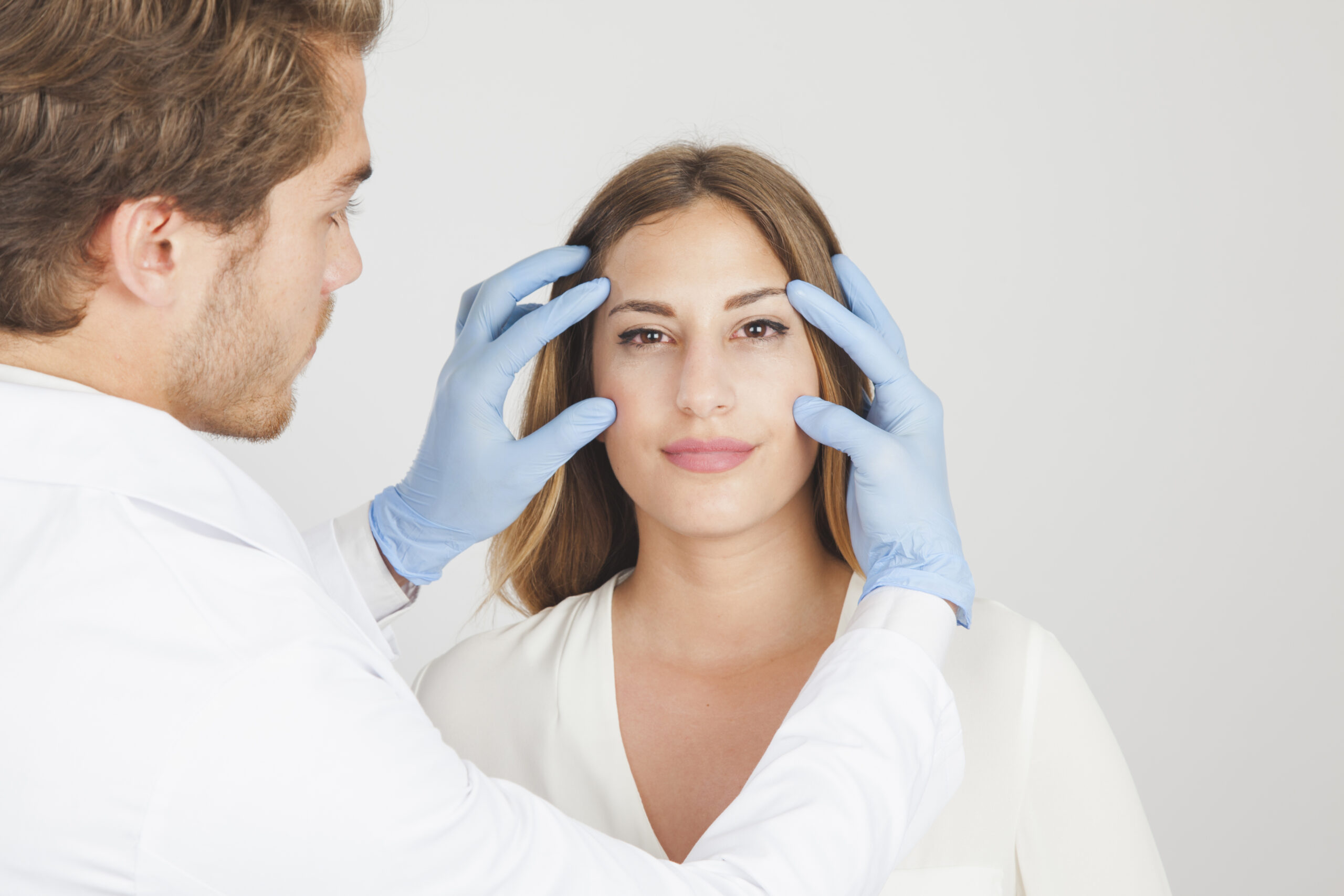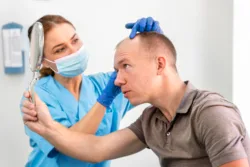Rhinoplasty, also known as nose job surgery, is one of the most popular cosmetic procedures performed worldwide. Proper preparation and aftercare are essential for getting the best results and a quick recovery and whatever the reason whether you’re having it done for aesthetic reasons or to improve breathing function.
In this blog, we will discuss the essential do’s and don’ts before and after rhinoplasty procedure to reduce risks and improve your healing.
Before Rhinoplasty: Do’s and Don’ts
Do’s Before Rhinoplasty:
1. Choose a qualified surgeon
Choosing a board-certified plastic surgeon with expertise in rhinoplasty is the first and most important step. Look out someone who has:
- A strong reputation
- Before and after photos of previous cases
- Check out patient reviews
- Extensive rhinoplasty knowledge, particularly in cases when revision rhinoplasty is necessary
Your surgeon has expertise in both function and aesthetics because rhinoplasty is as much about the first as the later.
2. Attend all pre-operative appointments
As you consult:
- Discuss your goals and concerns clearly
- Give a detailed account of your medical history, including any allergies, current medicines, and any operations.
- Ask about the anesthesia, recovery period, and surgical procedure.
3. Avoid smoking and alcohol
Smoking significantly decreases blood oxygen levels, which affects the ability of the body to repair itself. Additionally, smoking raises the risk of scarring and infection. At least four weeks before the surgery, you should stop, and four weeks following the procedure, you should continue refraining.
4. Stay hydrated and eat healthy food
A healthy body recovers more quickly. Eat the following during the week before surgery:
- Consume foods rich in protein and vitamins.
- Fruits and vegetables high in iron
- Vitamin C from broccoli and oranges to aid in tissue regeneration
- Drink a lot of water
Stay away from salty meals as these may increase post-operative swelling.
Don’ts Before Rhinoplasty:
1. Medications and supplements
Avoid medicines like aspirin, ibuprofen and blood thinners. These could make bleeding during surgery more likely.Stop them 1-2 weeks before you start (just as directed by your surgeon).
2. Don’t apply makeup, cream, and lotion
On your surgery day, don’t apply makeup, cream, or any lotion in your face. Take off your jewelry, contact lenses, and nail polish. In order to prevent infections, hygiene is essential
3. Don’t arrive without a plan for after surgery.
After the procedure, you are unable to drive yourself home. Make plans for someone to come get you and help you for 24 hours.
That time will be necessary to reduce bruising and swelling.
4. Avoid eating or drinking for 6 to 8 hours before to surgery
To reduce the risk of aspiration, fasting is required if general anesthesia will be used. You’ll get detailed instructions from your surgeon on when you should stop drinking and eating.
5. Don’t delay to ask questions
Ask your surgeon everything you’re unsure about, including the risks, recovery time, pre-surgery instructions, and expected results. Knowing the whole process before will help you make well informed decisions at every stage and avoid misconceptions.
After Rhinoplasty: Do’s and Don’ts
Do’s After Rhinoplasty:
1. Follow your surgeon instructions
First of all, you will need to follow your surgeon guidelines for proper healing. These include-how to care for the nose, how to sleep, which medicines to take, and when to schedule follow-up appointments. It is essential that you follow these guidelines in order to ensure a healthy recovery.
2. Sleep in you head elevated
During the first two weeks, keep your head elevated which helps to reduce swelling and enhances blood flow around the nose.
3. Maintain a healthy diet
Eat food rich in vitamins and nutrients. Include these foods:
- Vitamin C to aid in skin healing (oranges, berries)
- Tofu, eggs, and chicken proteins for tissue healing
- Zinc to prevent infections (nuts, seeds, and legumes)
Stay hydrated by drinking lots of water and avoiding foods high in salt, which may increase swelling.
4. Sun protection
Being exposed to sunlight may cause scarring, increase swelling, and produce discoloration. After surgery, stay out of the sun for at least six to eight weeks. Protect your nose from the sun with a hat and using sunscreen.
5. Use cold compresses around the nose
During the first 48 hours, cold packs applied around the nose (not on it) can help minimize swelling and bruises. However, take care to avoid applying pressure on the nose itself. Additionally, ice should only be used for 10 to 15 minutes at a time, covered in a cloth to prevent direct skin contact.
Don’ts After Rhinoplasty:
1. Avoid strenuous activities
At least 3-4 weeks, avoid strenuous activity, heavy lifting, and gym workouts that put pressure on your nose. After a few days, start walking lightly, and only begin full activity with the surgeon’s permission.
2. Avoid smoking and alcohol
Avoid smoking at least 2-4 weeks after surgery. Because it could impact your healing process . As a result, the recovery process can be slow. Drinking alcohol can cause blood loss, swelling, and prescription side effects.
3. Avoid makeup or skincare products
After surgery your skin is sensitive. For at least two weeks, avoid applying makeup, lotions, creams or any other skin products around the surgical regions. Stay away from these things until your doctor gives you the permission to do them.
4. Avoid touching, picking or rubbing your nose
Try not to touch or scratch your nose, even though it will feel uncomfortable and blocked. Internal tissues may become inflamed or damaged while they recover.
5. Avoid wearing sunglasses
Four at least four to six weeks, avoid wearing glasses on the nose. If required, use contact lenses or apply forehead tapping. For any essential eyeglasses, your surgeon might recommend a specific support.
6. Don’t expect immediate results
It’s normal to be nervous about the appearance of your new nose. The final result may be affected by initial swelling. It usually takes the longest for the nose tip to settle. The final shape could not show up for six months or a year, so be patient.
Conclusion:
Following pre- and post-operative care instructions is crucial to the success of rhinoplasty, which is a sensitive treatment. Your recovery and outcome can be greatly enhanced by knowing what to expect, planning ahead, and according to aftercare instructions frequently. Always follow your surgeon’s advice and don’t hesitate to ask questions. If you want to get more information, then please visit Aestheticure. Our best expertise and experienced surgeons will provide you with the best treatment and proper care and also they will guide you through the procedure, provide you with thoughtful, honest answers to all of your questions. For more information or to schedule a consultation, feel free to Contact Us!







